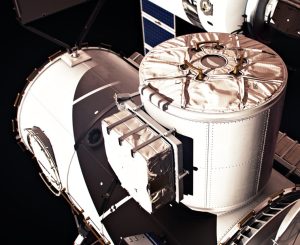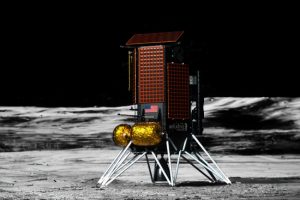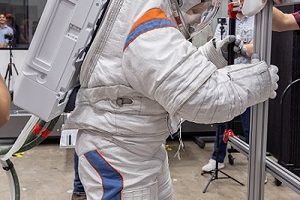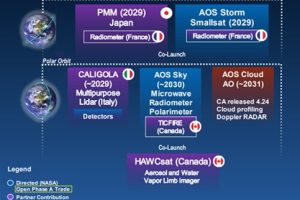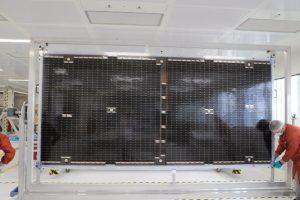Specifically, the Mohammed bin Rashid Space Centre (MBRSC) of the UAE will be responsible for the development of the module.
The Gateway station is intended to support NASA’s missions for long-term exploration of the Moon as part of the Artemis Accords, of which UAE is a signatory.
The Crew and Science Airlock, as its name suggests, will support transfers to and from the station for astronauts and their in-space experiments. The wider purpose of Gateway is also to serve as a communications hub for Moon exploration, as well as serve as a possible holding area for rovers and other robotic devices.
As well as operating the airlock, MBRSC will provide engineering support for the life of the lunar space station. A UAE astronaut will also fly to the lunar space station on a future Artemis mission, as part of the agreement.
Nasa says the airlock will allow crew – and science research – transfers to and from the habitable environment of Gateway’s pressurised crew modules to the vacuum of outside space. “These transfers will support broader science in the deep space environment, as well as Gateway maintenance,” it adds.
“The United States and the United Arab Emirates are marking a historic moment in our nations’ collaboration in space, and the future of human space exploration,” said NASA Administrator Bill Nelson.
“We are in a new era of exploration through Artemis – strengthened by the peaceful and international exploration of space. The UAE’s provision of the airlock to Gateway will allow astronauts to conduct groundbreaking science in deep space and prepare to one day send humanity to Mars.”
Another module on Gateway will be Halo, the habitation quarters – the Habitation and Logistics Outpost, to give it its full name – the contract for which has been awarded to Northrop Grumman.
Agencies
The Gateway project currently involves five partner agencies — NASA, European Space Agency (ESA), Japan Aerospace Exploration Agency (JAXA), Canadian Space Agency (CSA), and the Mohammed Bin Rashid Space Centre (MBRSC).
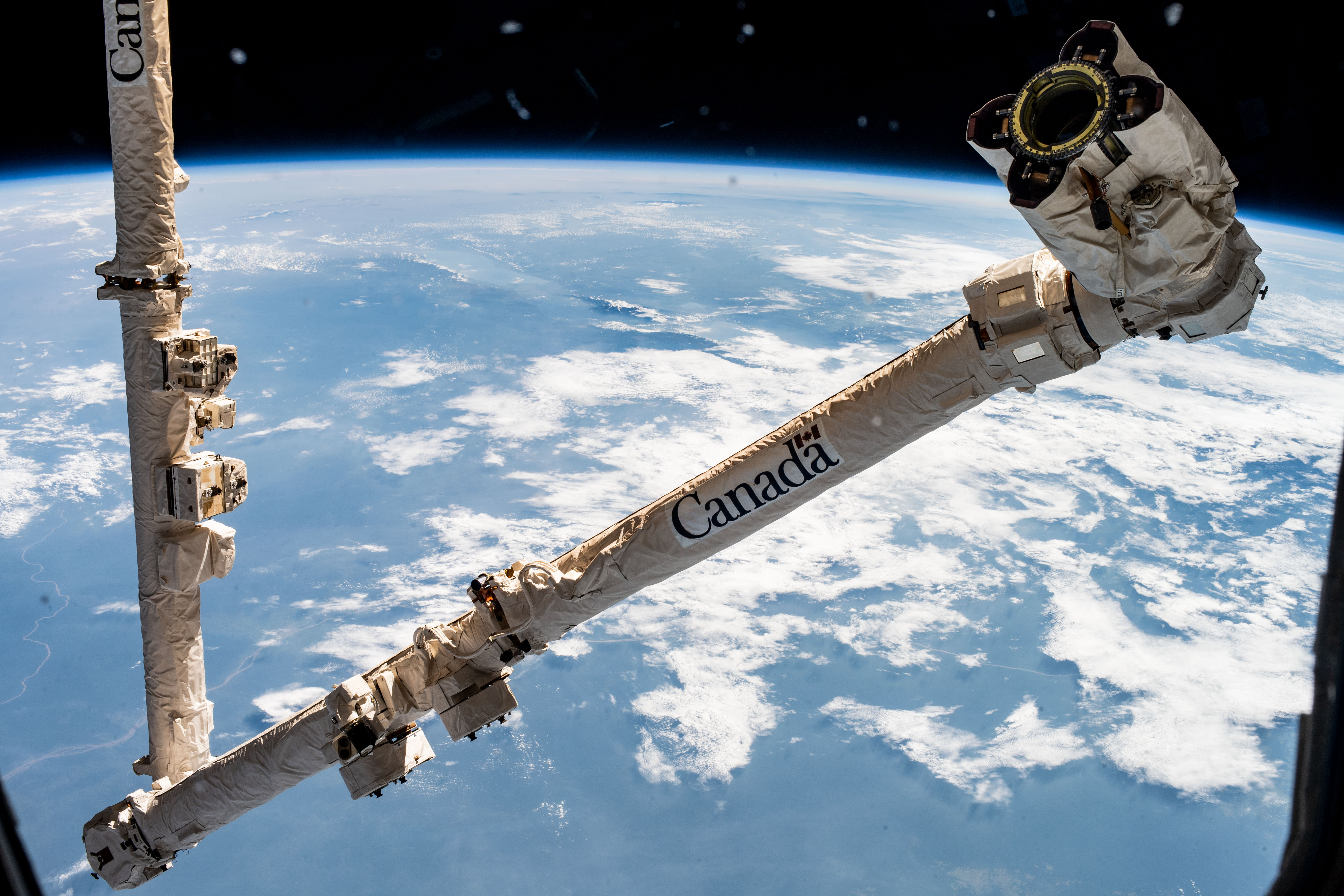 Pictured right is Canadarm2 on the International Space Station, where it helps with external repairs and aiding the docking of visiting craft. Canada has already formalised its involvement in the Lunar Gateway programme by committing to build its space robotics system, which is dubbed Canadarm3.
Pictured right is Canadarm2 on the International Space Station, where it helps with external repairs and aiding the docking of visiting craft. Canada has already formalised its involvement in the Lunar Gateway programme by committing to build its space robotics system, which is dubbed Canadarm3.
The United Arab Emirates was one of the original eight signatories of Nasa’s Artemis Accords.
Image: Nasa – an artist’s concept of a government reference airlock
See also: NASA and JAXA agree on Lunar Gateway life support systems
 Electronics Weekly Electronics Design & Components Tech News
Electronics Weekly Electronics Design & Components Tech News
